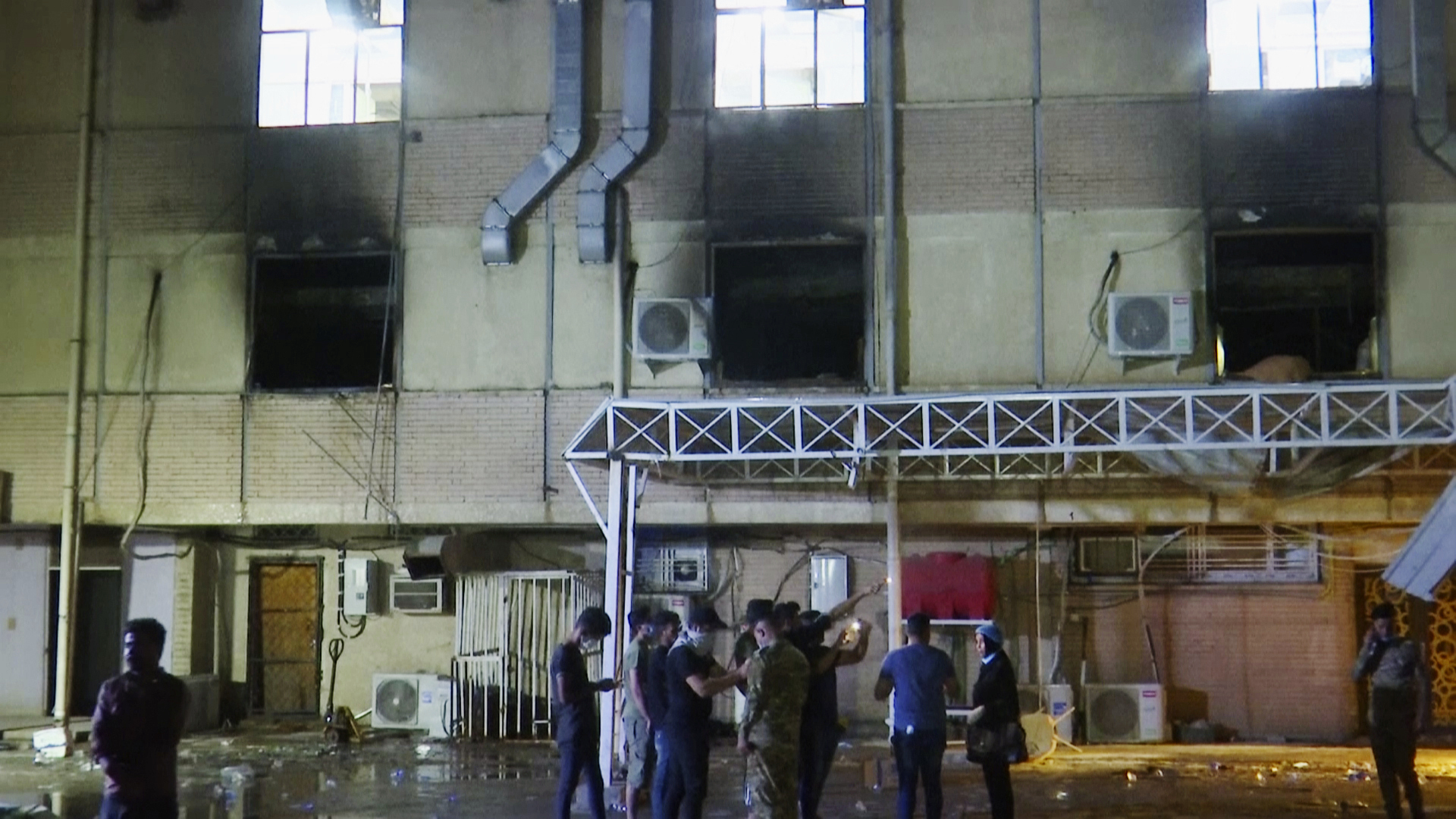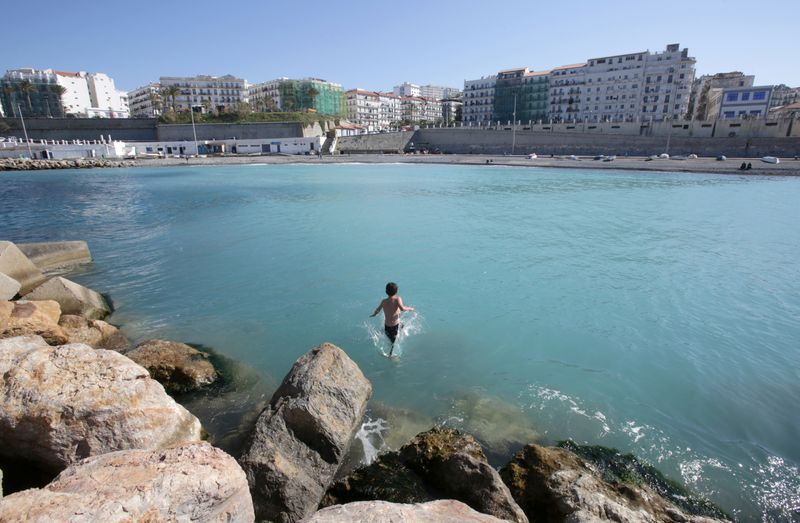As war in east rages on, Ukraine gets chance to ‘live the European dream’
 British Prime Minister Boris Johnson and Ukraine's President Volodymyr Zelenskiy visit an exhibition of destroyed Russian military vehicles and weaponry, as Russia's attack on Ukraine continues, at Mykhailivska Square in Kyiv, Ukraine June 17, 2022. Ukrainian Presidential Press Service
British Prime Minister Boris Johnson and Ukraine's President Volodymyr Zelenskiy visit an exhibition of destroyed Russian military vehicles and weaponry, as Russia's attack on Ukraine continues, at Mykhailivska Square in Kyiv, Ukraine June 17, 2022. Ukrainian Presidential Press ServiceAs war rages in Ukraine’s east, Kyiv received a major boost on Friday when the European Union recommended that it become a candidate to join the bloc, foreshadowing a dramatic geopolitical shift in the wake of Russia’s invasion.
At a summit next week, EU leaders are expected to endorse the recommendations by the bloc’s executive for Ukraine and neighbouring Moldova.
Ukrainian President Volodymyr Zelenskiy said on Twitter the bravery of Ukrainians had brought an opportunity for Europe to “create a new history of freedom, and finally remove the grey zone in Eastern Europe between the EU and Russia”.
As diplomacy advanced with Brussels, intense fighting continued in the eastern region of Donbas, where Russia seeks to solidify and extend recent gains, while British Prime Minister Boris Johnson made a surprise visit to the capital, Kyiv.
Zelenskiy said in a nightly televised address that the decision of EU member states remains to be seen, but added: “You can only imagine truly powerful European strength, European independence and European development with Ukraine.”
European Commission President Ursula von der Leyen announced the decision while wearing the Ukrainian colours, represented by a yellow blazer over a blue blouse.
“Ukrainians are ready to die for the European perspective,” she said. “We want them to live with us the European dream.”
Russian President Vladimir Putin railed at the West, the United States in particular, in a grievance-filled speech in St Petersburg, but sought to play down the EU issue.Advertisement · Scroll to continue
“We have nothing against it,” he said. “It is not a military bloc. It’s the right of any country to join economic union.”
However, Kremlin spokesperson Dmitry Peskov said Russia was closely following Ukraine’s EU bid, especially in the light of increased defence cooperation among the 27-member bloc.
Ukraine applied to join the EU four days after Russian troops poured across its border late in February. Within days it was joined by Moldova and Georgia, smaller former Soviet states also contending with separatist regions backed by Russia.
Although only the start of a process that may run for years and require extensive reforms, the move by the European Commission puts Kyiv on course to realise an aspiration seen as out of reach just months ago.
One of Putin’s stated objectives in launching what Moscow calls a “special military operation” that has killed thousands of people, destroyed cities and sent millions fleeing was to halt the West’s eastward expansion via the NATO military alliance.
But Friday’s announcement underlined how the war has had the opposite effect: convincing Finland and Sweden to join NATO, and now the EU to embark on potentially its most ambitious expansion since welcoming Eastern European states after the Cold War.
Heightening the global showdown, Russian media broadcast images of what they said were two Americans captured while fighting for Ukraine. “I am against war,” the men said in separate video clips posted on social media.
POST-SOVIET GENERATION
EU membership is not guaranteed – talks have been stalled for years with Turkey, a candidate since 1999. But if admitted, Ukraine would be the EU’s largest country by area and its fifth most populous.
Ukraine and Moldova are far poorer than current EU members and have recent histories of volatile politics and organised crime, in addition to their conflicts with Russian-backed separatists.
But in Zelenskiy, 44, and Maia Sandu, 50, they have pro-Western leaders who came of age outside the Soviet Union.
Johnson, the latest in a string of foreign leaders visiting Kyiv, offered training for Ukrainian forces and said Britain would stand by the Ukrainian people “until you ultimately prevail”.
Ukrainian Foreign Minister Dmytro Kuleba urged the West not to “suggest peace initiatives with unacceptable terms”, in an apparent reference to remarks this month by French President Emmanuel Macron that finding a diplomatic solution requires not humiliating Russia. read more
Instead, Kuleba wrote in an online article in the magazine Foreign Policy, the West should help Ukraine win, not just by providing heavy weapons but by maintaining and increasing sanctions against Moscow.
“The West cannot afford any sanctions fatigue, regardless of the broader economic costs,” he wrote. “It is clear that Putin’s path to the negotiating table lies solely through battleground defeats.”
Since Ukraine defeated Russia’s bid to storm Kyiv in March, Moscow has refocused on the eastern Donbas region, which it claims on behalf of separatist proxies, and its forces have used their artillery advantage to blast their way into cities in a punishing phase of the war.
Russia is taking a pounding too.
Its military is “suffering heavy casualties” after concentrating the vast majority of its available combat power to capture Sievierodonetsk and its sister city, Lysychansk, at the expense of other axes of advance, Washington-based think tank the Institute for the Study of War said in a note on Friday.
SOURCE: REUTERS











